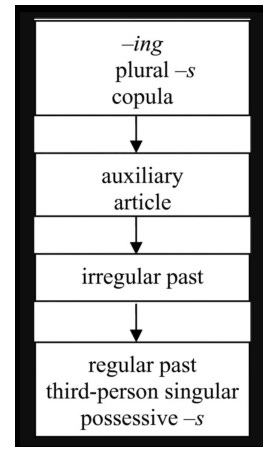Teaching Writing Tip of the Week: On Summative Grading and the Sentence Level
Hi Everyone,
As the end of the semester (unbelievably) approaches again, I thought I'd send some quick thoughts on the feedback we give our multilingual (and all) writers. Formative feedback, as most of us know, should prioritize "higher order concerns" related to writer's purpose, development, and organization, providing students an opportunity to revise according to those concerns before turning to "lower order concerns," evidence of "written accent" (Cox, 2016) at the sentence level that can both make our writers' prose shine in wonderfully creative ways—and, possibly, tangle what the writer wants to say.
But what about summative feedback and committing to a grade?
Here is some guidance--agreed upon by most members of the TESOL community--on providing summative feedback on multilingual writing:
Stay focused on the intended outcomes of the assignment. Does evidence of written accent clash with the stated outcomes? If not, how much does it matter as you grade?
Please note: as I talk about written accent, I'm intentionally not using the words grammatical "errors," "mistakes," or "interference" here, as these terms can shut down important conversations on how language develops according to predictable stages, with grammar forms likewise acquired and internalized according to what Krashen and Terrell (2011) have described as The Natural Order Hypothesis:
The natural order hypothesis suggests that second language learners may follow a particular order when learning formal grammatical items, a natural, specific order independent of the learner’s age, learning conditions, etc. Learners initially acquire some grammatical structures before others, and this order is the natural order (Krashen & Terrell, 2011).
Here's an example from Krashen of SOME of the grammatical forms multilingual learners acquire in stages:
So keeping the Natural Order Hypothesis in mind, as well as "rhetorical grammar" (see Al's tip from last fall), and as we grade final papers, we might ask: are there patterns in the student's written accent that suggest they are still in the cognitive process of acquiring a particular grammatical form? Can we trust that—as they continue grappling with (and hopefully reveling in) writing and reading and speaking and listening in English—they will eventually acquire the form? The answer is probably yes.
I hope this quick dip into the deep pool of language acquisition theory helps you relax when you encounter written accent and non-standard grammatical forms in your students' writing. Learning a language and all of its possible forms takes time, takes years. Not the four months of a semester.
Not yet convinced? Let's also remember (and look boldly through) the lenses of equity and social justice. As a reminder:
"Equality" would hold all students to exactly the same standards: all students should meet the assignment outcomes, and grading for lower order concerns should be the same percentage for all students.
"Equity" assumes every student gets the support they need to meet the outcomes (Isn't this a tough question to ask ourselves?!).
"Justice" assumes systemic barriers which create need for additional and differentiated support have been removed (such as "standard English," which begs the questions, whose standards, and to what end?).
So here is Cox's (2014) take on how to ensure equity as we move toward justice:
Expecting the same level of language proficiency from multilingual writers is, itself, unfair.
Multilingual “students are doing something much more difficult than our English L1 students: they are learning and being evaluated on their learning in a second language. To make evaluation truly equitable, faculty would need to ask English L1 students to complete writing assignments in a second language” (313).
Because the process of writing and learning to write in a second language is distinctly different from writing and learning to write in a first language, says Cox, we simply cannot equitably hold students to the same standards.
These are words worth pondering, I think, as we prepare to grade our students.
Reach out if you have questions or concerns related especially to first year or multilingual students: I am always happy to talk further.
Best,
Amy Jo Minett



